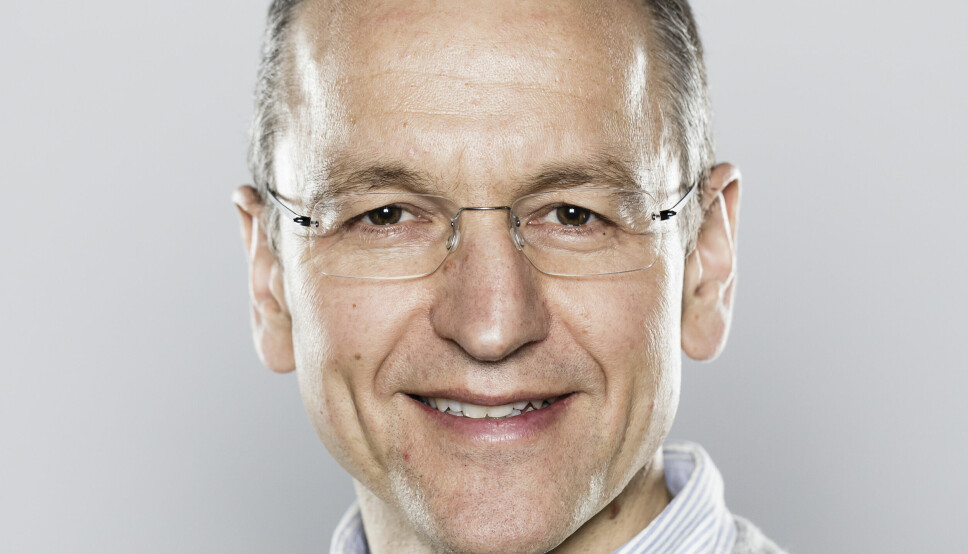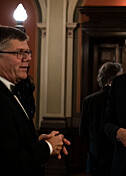Debatt ● Poul Wisborg
Yes to Education, no to Segregation!
The tuition fee for non-European students in Norway is unfair and a threat to education quality.

‘We find it hard to appreciate a benefit that is not equally accessible to everybody’, a Norwegian woman once said to express the meaning of Nordic social democracy. The Norwegian government is now asking students and educators to put aside that sentiment and principle.
Its recent national budget proposed the introduction of tuition fees for students from outside Europe starting in 2023, currently on a public consultation. The government anticipates an annual fee of around 130.000 kroner applicable to students who are not from the European Union/Economic Area – about 8.600 individuals in 2020. The government expects the number of students from the affected countries to drop by about 70%, and calculates savings from excluding these students to be about 300 million kroner per year from 2025. This amounts to about 0,5 percent of the 2023 budget for research and higher education of 57 billion (mrd.) kroner.
The proposal is unjust because it will make global access to higher education even more unequal, particularly by excluding students from the global South – Africa, Asia and Latin America – who have less economic opportunities for funding their higher education. According to UNESCO, the access to higher education is 77% in Europe and North America, 73% in Oceania and 52% in Latin America. In Central and South Asia, enrolment increased from 9% to 26% from 2000 to 2018, in sub-Saharan Africa from only 4% to 9%. These are the regions that will be most affected by tuition fees – countries disadvantaged by past colonization and exploitation and where access to education has worsened in the current cost of living crisis. From the global South, mainly wealthy elites will be able to afford tuition fees of about 11.000 kroner per month, which is two to three times the average lecturer’s salary in Nepal (3.800 kroner per month) or teacher’s salary in Ghana (4.200 kroner). From Brazil, the top 10% with an income of 71.000 kroner per month may afford it, but none from the bottom 50%, where the average salary is 2.400 kroner. A valuable contribution to human development will be missed.
The Norwegian proposal flies in the face of global and national commitments to reach equal access to higher education. Defending the proposal, Minister for Higher Education and Research Ola Borten Moe argued that it is unfair that Norwegian students pay tuition fees abroad while students from abroad don’t pay for tuition in Norway. This contractual logic assumes a just world where all have similar resources and opportunities. This is not the world we actually live in. The proposal and the Minster’s justification are blind to massive inequalities of geography, race and class and depart from the ideals of social democracy and Norway’s commitment to changing the world by honouring human rights (Universal Declaration, Article 26.1.: “higher education shall be equally accessible to all on the basis of merit») and the Sustainable Development Goals “By 2030, ensure equal access for all women and men to affordable and quality technical, vocational and tertiary education, including university.” In its proposal, the government fails to even consider the impact on racial disadvantage in access to higher education and the violation of these commitments.
For us as educators at Noragric, NMBU, the fees are both an academic threat and an emotional issue. We lead and teach in international programmes that aspire to create global classrooms. We know that many of our students would be missing in a scenario with a 130.000 kroner tuition fee. As Nisha Jha (25) from Nepal told NRK, she would not have been able to do her Master in International Environmental Studies at NMBU, had the tuition fee been applied to her. Chikeluba from Nigeria, a first-year Global Development Studies student, said he would have had to work much longer hours to sustain himself, so his studies would suffer. When only global South students with an elite background make it here, it limits the knowledge and perspectives they are able to contribute to the class. It would be painful to face a class where some students had been forced to pay the equivalent of several annual wages in their home countries for a position as a bachelor or master student in Norway. Teaching development and human rights – non-discrimination and the equal worth and rights of everyone – my words would ring hollow.
Our Master in Global Development Studies illustrates the negative impact the proposal would have on international education – undermining the global classroom. In 2021 we got accreditation from the International Accreditation Council for Global Development Studies and Research, based on the quality of the programme and the diverse body of students: During 2006 to 2019, we graduated 264 students, representing 40 countries and 6 continents. Norwegian students, some of whom with an international background, made up a majority (60%). With tuition fees and the 70% drop expected by the government, African students would decline from 16% to 6% and Asian from 10% to 3%; over nine out of ten students excluded in the coming years would be from the global South, evidence of the geographically and racially discriminatory impact. The proposed fee would ultimately eliminate our global classroom, since 90% of students would now come from the global North. Next, European students may also decline, since we can no longer offer the global classroom they are seeking.
The introduction of tuition fees is neither ethically, socially nor financially sustainable. It will reduce the quality of higher education and Norway will lose the diversity of knowledge and experience and the potential for future networks, partnerships and employment that all international students bring. Rather than making classrooms the sites of exclusion and disparity, Norway ought to maintain its laudable system of tuition-free higher education and use it as a platform for advocating free higher education globally, honouring the human right to non-discrimination and the target in Sustainable Development Goal 4 about securing equal access to higher education by 2030.











